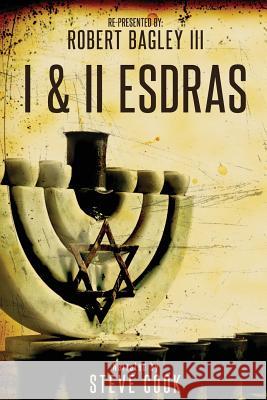1& II Esdras » książka
1& II Esdras
ISBN-13: 9781542540490 / Angielski / Miękka / 2017 / 140 str.
Found in the Apocrypha, The Books of I & II Esdras use supplemental materials taken from II Chronicles and Nehemiah to revise the book of Ezra, which is contained in the Bible. Esdras is the Greek form of Ezra, which is Hebrew. The story about the King of Persia questioning the three young men is found in this book as well. The King asks the three to enter into a debate over his question, "What is the strongest thing in the world?" He promises to reward the winner with a prize. This book is not included in the Roman Catholic Bible. In 2 Esdras, Ezra has conversations with angels who are sent to him so he can question them about theology. There is an amazing account that describes the loss of all Hebrew Scriptures during the Babylonian exile of the Jews. In the story, Ezra recites these Scriptures perfectly, inspired by God. Ezra dictates the Scriptures to five scribes exactly. He also dictated seventy secret books which were to be read only by wise people. Second Esdras is said to be included as one of these seventy additional books. Understanding the Importance of the Apocrypha: In modern times, the Apocrypha has only been excluded from the Old Testament in some Protestant publications. The idea that these books are forbidden is viewed both as myth and fact by many Christian scholars, with the reasonable course left in the midst of divided opinion being to study and understand these books. The New Testament is said to contain many references to the books of the Apocrypha, and Christians today must be knowledgeable about them. Jesus himself is said to reference texts from the Apocrypha using the Old Testament language which was familiar to those he was teaching. There are many comparisons which can be made between specific New Testament texts and related Apocrypha texts. It is also interesting to note that the Apostolic Fathers of the Early Church referenced the Apocrypha, and quoted from it as they did the Old Testament. It was hard not to do so, as the Jewish Old Testament included the Apocrypha. Much debate over which books should be considered part of the scripture continued as history evolved and time moved further away from the era in which the original texts were written. Various church councils made different decisions about what should be included and which should not, and these decisions are reflected in history. But, ALL Christians who are serious about their walk in the Christian faith should read the Apocrypha, ponder its place in Christian history, compare what the great church scholars have said concerning it, consider why Jesus himself referred to it, and understand its significant contributions to the ultimate message of salvation made available by Jesus the Messiah.
Zawartość książki może nie spełniać oczekiwań – reklamacje nie obejmują treści, która mogła nie być redakcyjnie ani merytorycznie opracowana.











